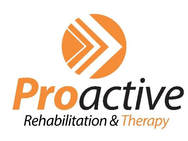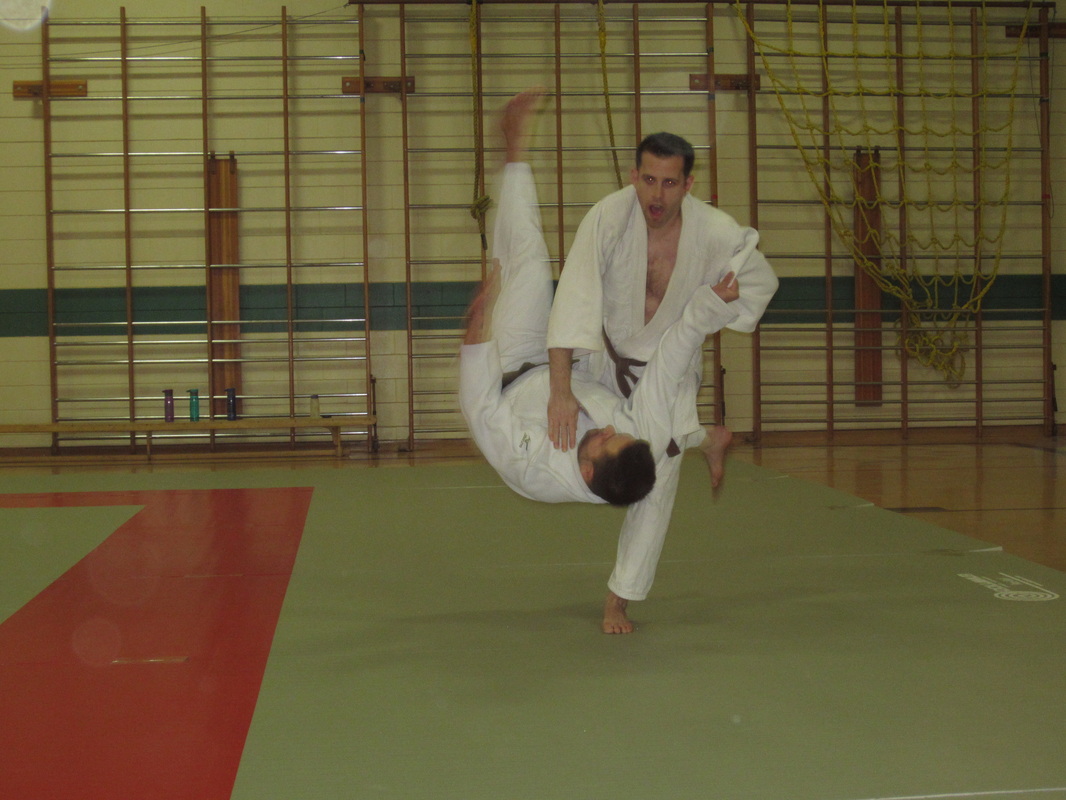David Chochinov was 19 years old when he began to experience pain in the lower right quadrant of his abdomen. Fatigue, dehydration, and urgent sprints to the washroom followed. He was eventually diagnosed with Crohn’s disease in 1999. David’s quality of life suffered from Crohn’s as he had difficulty concentrating on his post-secondary studies. His participation in sports, particularly Judo was also affected. Judo is a modern Japanese martial art and combat sport that requires optimal health, strength, and endurance. Having lost over 10 pounds from his disease in his first year and feeling physically depleted, David accepted that he was no longer in condition to continue with Judo. He reluctantly bowed out of the sport only a year or two away from earning his black belt and opportunities to advance to higher levels of competition.
“I felt lost and outmatched,” recalled Chochinov, “Crohn’s had me beat.” David followed the recommendations of his gastroenterologist and went on a pharmaceutical regime. “I used 5-ASA or Mesalamine anti-inflammatories to treat my symptoms. I didn’t get great results, but my symptoms were blunted just enough so that the pain was more manageable.”
For the next few years, David looked into dietary changes, supplements, and probiotics to improve his health. “I wasn’t satisfied with a pharmaceutical intervention, I wanted to fight back against my Crohn’s and win back my health.” David learned from his Judo training that a champion doesn’t quit even when the odds aren’t favorable. “I kept digging deep and refused to accept defeat.” Chochinov says. David gradually demonstrated such effective Crohn’s management that his gastroenterologist questioned whether he had been correctly diagnosed from the start. In 2011, after a period of prolonged stress, David began experiencing a significant flare up. “I had to go through re-diagnosis again using two separate screening methods. My GI was convinced it was Crohn’s when he saw the MRI images.
I was prescribed a high dose of Mesalamine (Salofalk), which I had discontinued years before. The drug proved ineffective, and I was offered stronger medications with more side effects, such as Humira, Imuran, and Entocort. I chose to put my faith in my own treatment regime of dietary controls, supplements, and probiotics. After a few months, I was feeling great, both pain and side effects free.”To prove that he had achieved mastery over his Crohn’s, David had one challenge remaining. “I needed to get back into Judo and compete again.” He said, “Over the past year, I began training to see how my body would tolerate the aggressive demands of Judo. I was pleased to find that my symptoms remained under control despite the twisting motions and intense physical exertion.” In January 2014, David registered for the Selkirk Judo tournament. He matched his body, after 15 years of Crohn’s inflammation, against a younger man in perfect health, and came out with the gold medal. “The best part of the experience was that I felt free from my Crohn’s to compete, win or lose,” said Chochinov.
“Crohn’s disease was a nightmare that I finally feel I can wake up from.” Chochinov says, “Had someone taught me how to manage my Crohn’s so that I could improve my quality of life, I would likely have recovered in my early twenties, and enjoyed many opportunities denied me.”David Chochinov is a private practitioner in the field of occupational therapy. Having recently founded his own company, Proactive Rehabilitation Manitoba, he is now prepared to champion Crohn’s and colitis for Manitobans.
Occupational therapy is a form of rehabilitative therapy that aims to assist people at succeeding in their activities of living. These occupations include leisure or sporting activities, work and productivity, as well as self-care. Occupational therapy focuses on methods to either improve or compensate for health impairments. A person recovers quality of life by making physical gains and/or by learning to do their activities differently. Occupational therapy is a service that is covered by many health insurance plans. David’s top five tips for managing Crohn’s disease:
“I felt lost and outmatched,” recalled Chochinov, “Crohn’s had me beat.” David followed the recommendations of his gastroenterologist and went on a pharmaceutical regime. “I used 5-ASA or Mesalamine anti-inflammatories to treat my symptoms. I didn’t get great results, but my symptoms were blunted just enough so that the pain was more manageable.”
For the next few years, David looked into dietary changes, supplements, and probiotics to improve his health. “I wasn’t satisfied with a pharmaceutical intervention, I wanted to fight back against my Crohn’s and win back my health.” David learned from his Judo training that a champion doesn’t quit even when the odds aren’t favorable. “I kept digging deep and refused to accept defeat.” Chochinov says. David gradually demonstrated such effective Crohn’s management that his gastroenterologist questioned whether he had been correctly diagnosed from the start. In 2011, after a period of prolonged stress, David began experiencing a significant flare up. “I had to go through re-diagnosis again using two separate screening methods. My GI was convinced it was Crohn’s when he saw the MRI images.
I was prescribed a high dose of Mesalamine (Salofalk), which I had discontinued years before. The drug proved ineffective, and I was offered stronger medications with more side effects, such as Humira, Imuran, and Entocort. I chose to put my faith in my own treatment regime of dietary controls, supplements, and probiotics. After a few months, I was feeling great, both pain and side effects free.”To prove that he had achieved mastery over his Crohn’s, David had one challenge remaining. “I needed to get back into Judo and compete again.” He said, “Over the past year, I began training to see how my body would tolerate the aggressive demands of Judo. I was pleased to find that my symptoms remained under control despite the twisting motions and intense physical exertion.” In January 2014, David registered for the Selkirk Judo tournament. He matched his body, after 15 years of Crohn’s inflammation, against a younger man in perfect health, and came out with the gold medal. “The best part of the experience was that I felt free from my Crohn’s to compete, win or lose,” said Chochinov.
“Crohn’s disease was a nightmare that I finally feel I can wake up from.” Chochinov says, “Had someone taught me how to manage my Crohn’s so that I could improve my quality of life, I would likely have recovered in my early twenties, and enjoyed many opportunities denied me.”David Chochinov is a private practitioner in the field of occupational therapy. Having recently founded his own company, Proactive Rehabilitation Manitoba, he is now prepared to champion Crohn’s and colitis for Manitobans.
Occupational therapy is a form of rehabilitative therapy that aims to assist people at succeeding in their activities of living. These occupations include leisure or sporting activities, work and productivity, as well as self-care. Occupational therapy focuses on methods to either improve or compensate for health impairments. A person recovers quality of life by making physical gains and/or by learning to do their activities differently. Occupational therapy is a service that is covered by many health insurance plans. David’s top five tips for managing Crohn’s disease:
- Pay attention to what you put into your body and how your body responds. Some foods/drinks trigger inflammation and worsen symptoms. Mobile application software such as Mysymptoms Food Diary can help track possible symptom triggers.
- Eat mostly simple non-processed natural foods such as chicken, fish, eggs, whole grains, fruits and vegetables.
- Stay hydrated by regularly drinking unprocessed, caffeine free beverages like herbal teas or water.
- Supplement with high quality probiotic capsules that assist the cultures to survive digestion through the stomach’s acid.
- Crohn’s and colitis often results in malabsorption or deficiencies of certain nutrients (due to inflammation). High quality supplements should be considered if you suspect deficits in B6, Folic acid, B12, vitamin D, iron, Selenium, Zinc, etc.


 RSS Feed
RSS Feed